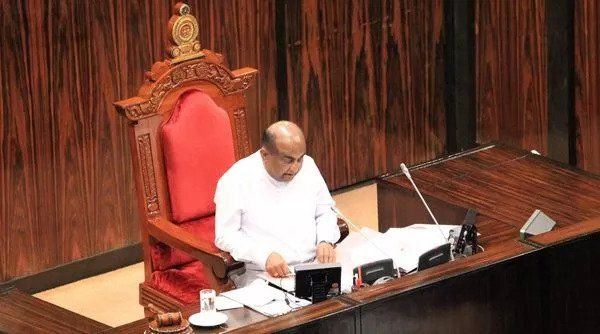Sri Lanka’s anti-terrorism bill removed from parliament’s order paper
COLOMBO – The controversial Anti-Terrorism Bill has been removed from the order paper of Sri Lanka’s Parliament, Speaker Mahinda Yapa Abeywardena announced on Wednesday (18).
Abeywardena told Parliament the bill had been originally added to the order paper on October 3 following a letter issued by the secretary to the Leader of the House dated September 27. However, a subsequent letter by the secretary on October 3 informed Parliament that the bill would not be issued, and therefore it was no longer in the order paper. Abeywardena, said the bill was not presented to Parliament for first reading as per standing order 50(1).
Sri Lanka’s proposed new counter-terror law drew criticism from various quarters including opposition parties and civil society. Human rights activists both local and international have repeatedly called for the repeal of the island nation’s existing Prevention of Terrorism Act (PTA), which critics have called draconian. Successive governments have been accused of using the PTA to stifle dissent, and some activists have expressed fear that the new bill would be no different, though the new bill’s backers contend that it is an improvement.
Responding to criticism of the PTA from Sri Lankan activists and lawyers, the United Nations Human Rights Council, foreign governments, and the European Union, successive Sri Lankan governments have repeatedly promised to repeal and replace the PTA with rights-respecting legislation. The proposed new Anti Terrorism Act which was supposed to replace the PTA has also been the target of much criticism both locally and internationally.
The Human Rights Watch (HRW) said in April that the act, if passed, would empower the authorities to systematically violate fundamental human rights.
The Anti-Terrorism Bill, which was published on March 22, 2023, is intended to replace the “notorious” PTA, HRW said in its statement, which led to “widespread torture and arbitrary detentions since its introduction in 1979”.
-economynext.com



Comments are closed, but trackbacks and pingbacks are open.